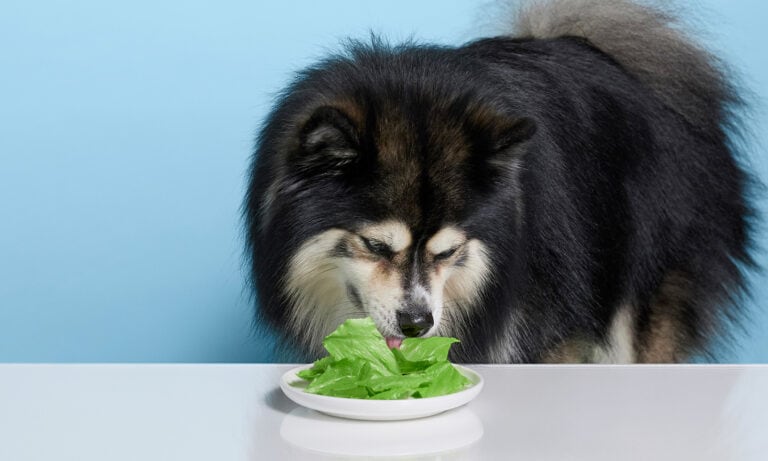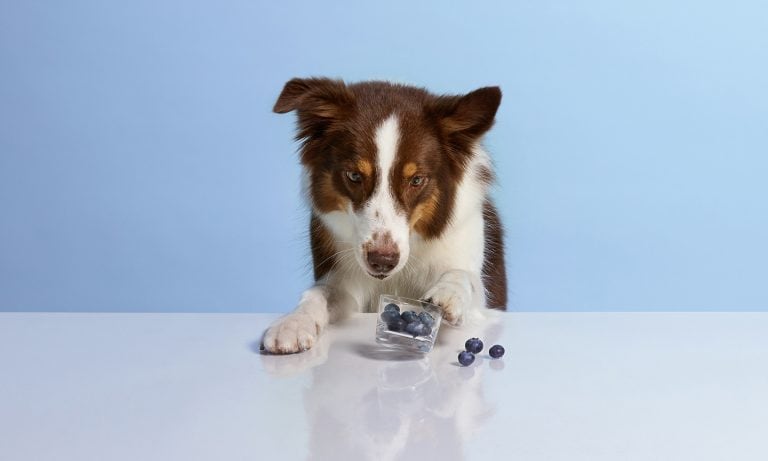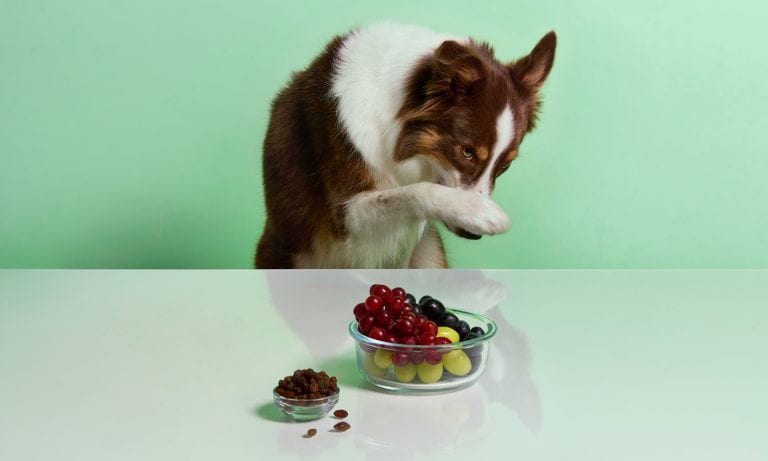When it comes to nature’s bounty of delicious fruits, there are several types dogs can enjoy in moderation—from blueberries and bananas to apples and watermelon. But can dogs eat plums?
Unfortunately, no—this sweet and juicy purple fruit shouldn’t be a part of your dog’s diet. While the flesh and skin of plums are generally not harmful to dogs, ingesting the pit can be dangerous due to its cyanide content. We spoke to vet experts to understand why you should keep this summer stone fruit off your pup’s menu.
Expert input provided by Dr. Alex Schechter, DVM, founder of Burwood Veterinary in Royal Oak, Michigan and Dr. Susan Konecny, RN, DVM, former medical director for Best Friends Animal Society® in Kanab, Utah.
Click to jump to each section:
Why Are Plums Bad for Dogs?
Cyanide poisoning
Plum pits, as well as the pits of other stone fruits, like peaches, cherries and apricots, contain the chemical amygdalin, which converts to hydrogen cyanide when chewed, and is extremely toxic to dogs. Amygdalin is located in the kernel, the true seed in the center of the pit. For cyanide to be released, dogs must chew the pit or ingest pieces of a broken pit.
The stems and leaves of a plum also contain cyanide-producing compounds and should be avoided.
Digestive damage and choking hazard
Plum pits can be pointy and if swallowed can cause damage to a dog’s esophagus, stomach or intestines.
Moreover, plum pits are a choking hazard and carry the risk of causing an intestinal blockage. While this is most likely to occur in a smaller dog, it could also happen if a large dog consumes several plum pits.
High sugar content
While the flesh of an in-tact plum is generally safe for dogs in moderation, you shouldn’t allow your dog to eat much due to its high sugar content.
Consuming a lot of sugar from fruit or sweet treats over a long period of time may cause numerous health issues for your dog, like upset stomach, obesity and diabetes.
Uh Oh, My Dog Ate a Plum–What Do I Do?
If you’ve given your dog a couple bites of sliced plum, there’s no need to panic. Your pup likely won’t have any problems with a little bit of plum flesh.
But if your dog has eaten a whole plum (with the pit) or chewed on the pit, there’s cause for concern.
Possible signs of plum poisoning (due to ingestion of the pit) include:
- Difficulty breathing
- Red gums
- Dilated pupils
- Loss of appetite
- Panting
- Drooling
- Watery eyes
- Vomiting
- Tremors
- Shock (confusion, weakness)
Look for any plum remnants to determine which parts of the plum your dog ingested. If the pit is still intact, your dog is likely OK.
However, you should take your dog to a veterinarian or the nearest pet emergency clinic immediately if:
- The pit appears broken or is in pieces.
- It appears your dog chewed on the pit.
- You can’t find the pit.
- You’re unsure how much or which parts of the plum they consumed.
- Your dog is showing signs of an intestinal blockage, including loss of appetite, bloating and straining to poop. This risk is especially heightened in small dog breeds.
If not promptly treated, ingestion of cyanide from a plum pit can quickly lead to respiratory collapse and death.
You can also call an animal poison helpline for advice, including:
- ASPCA’s Animal Poison Control Center (APCC) at (888) 426-4435
- Pet Poison Helpline at 855-764-7661
Are Plums as Dangerous as Grapes and Raisins for Dogs?
While both plums and grapes, including raisins, can be harmful to dogs, the risks they pose are somewhat different.
Plum flesh is generally safe for dogs to eat in small amounts. The true danger lies in the consumption of the pit, which can cause cyanide poisoning or an intestinal blockage.
Grapes and raisins, on the other hand, are harmful in their entirety, with ingestion leading to potentially fatal kidney failure.
So, while plums might seem less dangerous because the flesh is edible for dogs, both plums (specifically their pits) and grapes or raisins carry significant risks and should be kept out of reach from your furry friends.
How Do I Prevent My Dog from Eating Plums?
Preventing your dog from eating plums might take a bit of effort, but it's absolutely worth it to ensure your pup’s safety. Here are some suggestions:
- Store plums safely. Always keep plums and other potentially harmful foods out of your dog's reach, like on a high shelf or in a closed cabinet.
- Dispose of the pit promptly. If you’re eating a plum, ensure your dog can’t get to it, particularly the pit. Dispose of the pit promptly in a secure trash bin.
- Teach your dog the “leave it” command: This is useful for any situations where your dog may encounter something they shouldn't eat.
- Practice outdoor vigilance. If you have plum trees in your area or yard, keep a close eye on your dog when they’re outside to ensure they don't eat any fallen plums. Be vigilant about picking up any dropped fruit in your own yard.
- Consider dog-safe alternatives. Another option is to treat your dog to treats that have a hint of plum taste, like Nulo Freestyle Duck Recipe with Plum dog treats.
FAQs About Dogs and Plums
Q:
Can dogs have a little bit of plum?
Q:
Can dogs have purple plums?
Q:
What type of plum is best for dogs?
Q:
When can I give my dog a plum?
Q:
Can dogs eat prunes?
You can, however, treat your dog to these human foods:
Share:










